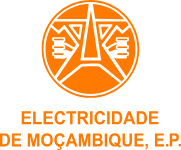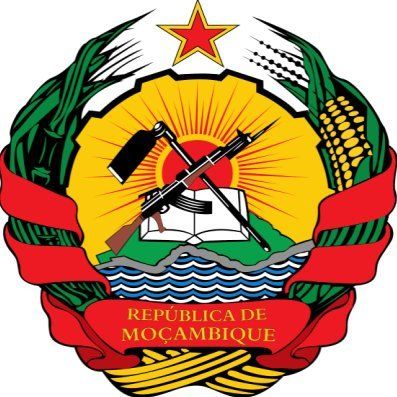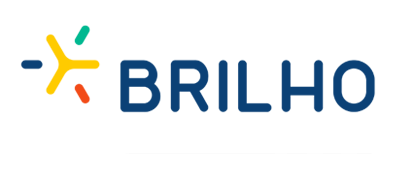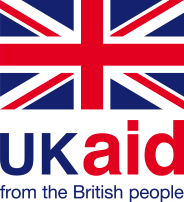The road so far
What has GESIS achieved so far? Here are some of our latest milestones
Policy brief on Mozambique’s new off-grid regulation
Read moreCESET/GESIS team members Carlos Shenga and Lorraine Howe have published a new policy brief in Portuguese that provides an overview of the opportunities and challenges for the uptake of off grid projects in the region. The study is titled ‘Oportunidades para Absorver Projectos Comunitários Energéticos’ and was funded by the Impact Acceleration Account of The University of Sheffield. You can read the entire document here on the CESET site
GESIS participates in the inaugural conference of the International Network on African Energy Transition
Read moreGESIS team member Lorraine Howe was invited to join the inaugural conference of the International Network on African Energy Transition (INAET), co-hosted by Luiss University and Eni, in Rome on 16-17 November 2023.The conference saw the participation of universities, research centres and institutions from across Africa (Algeria, Congo, Côte d’Ivoire, Egypt, Ethiopia, Kenya, Mozambique, Nigeria, Rwanda, and South Africa) with the aim of establishing a network to create and share knowledge on the continent’s energy transitions. At the conference, Lorraine presented GESIS as part of discussions around just and inclusive energy transitions.
Gender equality and social inclusion seal
Read moreThe gender equality and social inclusion (GESIS) and new White Paper 2023 "A norm regulating the implementation of GESI in Mozambique’s energy sector" was launched at a stakeholder meeting at the Palona Hotel in Maputo.
In 2018, the Government of Mozambique approved the National Electrification Strategy to reach universal access to electricity in 2030. The “Energia para Todos” (Energy for All) project will expand the on-grid and the off-grid energy infrastructure in Mozambique at a rate of 450,000 new households every year until 2030.
For this to work, massive social change needs to take place. However existing structures of dissemination may lead to certain groups being excluded from the social benefits of improved energy access. In response to this, the CESET project received funding from The University of Sheffield ESRC Impact Accelerator Accounts to initiate The Gender Equality and Social Inclusion Seal (GESIS) in collaboration with BRILHO. GESIS is specifically concerned with ensuring gender equality in the energy sector, so that all participants have safe and equal access to resources, and can be involved in decision making processes, and everyone is treated fairly and with dignity; and that all participants have equal opportunities, regardless of their backgrounds, to achieve their full potential in life.
GESIS is an incentive-based system for energy operators to improve their performance in matters of gender equality and social inclusion. By signing up to GESIS they are signing up to supporting increased economic performance improved productivity, and increased rates of innovation and impact.
Please read the recent GESIS White Paper 2023 to find out more.
Additionally, in November 2022 the CESET team visited Maputo in Mozambique to participate in the “Off-grid energy regulatory framework: a regional perspective” organised by BRILHO. CESET Principal Investigator Professor Vanesa Castán Broto presented GESIS, which you can watch on the CESET YouTube Channel.
Mozambican Government, SNV and CESET build Synergies to operationalize GESIS
Read moreSNV held a key milestone meeting on April 19th in the city of Maputo under BRILHO programme. The meeting joint together a multi-sector group composed by National Statistics Institute (INE), Ministry of Mineral Resources and Energy (MIREME), Energy Regulatory Authority (ARENE), Electricity of Mozambique (EDM), National Energy Fund (FUNAE), Community Energy Systems and Sustainable Energy Transitions (CESET) and WIN programme, to reflect on different pathways must be used for data collection and reporting under Gender Equality and Social Inclusion Inclusion Seal (GESIS) indicators framework.
The initiative is part of BRILHO´s programme objectives, which consists in supporting government to create a more inclusive and gender sensitive regulatory framework in the off-grid energy sub-sector to reduce inequalities in access to energy and to the benefits from the energy transition.
During the meeting, the multi-sector group including the Ministries of Health, Agriculture and Gender were focussing in the overview analysis of GESIS indicators framework and on how the reporting system can be strutured ensuring INE and its agencies can collect data, monitor, and report on human development indicators as result of energy operators intervention in both institutional and community levels.
Olimpio Zavale from INE, alluded that institutional coordination is a key for efficient data collection, as INE has access to different sources of information through its units. However, he highlighted that GESIS indicators framework must be aligned with the National Statistics System, so that its implementation can contribute to gather more evidences on gender equality and social inclusion standards in the energy sector in Mozambique.
The SNV Energy Sector Leader, Javier Ayala, have mentioned that BRILHO programme has been working in cooperation with ARENE and MIREME to establish an enabling environment for access to energy in off grid areas, and the Gender Equality and Social Inclusion Seal is an innovative initiative aiming to promote gender equality and social inclusion standards in the energy sector in Mozambique, being developed under BRILHO leadership.
Furthermore, Javier Ayala stated that the purpose of the meeting was to assess the effectiveness of the GESIS indicators framework and its alignment with the National Statistics System ensuring the information flow in the monitoring and impacts evaluations processes.
To Vanesa Broto, CESET is implementing a multi-country project in Ethiopia, Malawi and Mozambique in off-grid sub-sector to facilitate the transition to renewable energies, taking into consideration the gender equality and social inclusion standards and the local context.
Following-up actions will be taken to ensure gender equality and social inclusion indicators are reported in the energy sector in Mozambique.
With financial support from UK and Sweden, GESIS is a standard being developing under leadership of BRILHO programme and in partnership with MIREME, ARENE, FUNAE, EDM, CESET and WIN. Its main objectives are stimulate economic growth of energy operators through promotion of gender equality and social inclusion standards and ensuring that social impacts generated in communities, through access to energy, is being reporting in the national statistics...
GESIS at the first Regional Conference on the Regulatory Framework for Access to Off-grid Energy
Read moreProf. Vanesa Castan Broto from The University of Sheffield delivered a talk on “Local content and gender equality and social inclusion (GESI) in the off-grid sector” at the first Regional Conference on the Regulatory Framework for Access to Off-grid Energy, an international event which brought together more than 50 panelists, with the aim of sharing the regulatory framework for access to energy in off-grid areas with relevant regulatory bodies and associations, providing the exchange of experiences, as well as creating opportunities for synergies in the off-grid energy sector in Africa and Mozambique.
You can watch her presentation here: https://youtu.be/tbgfRcEmoh0
Partners












